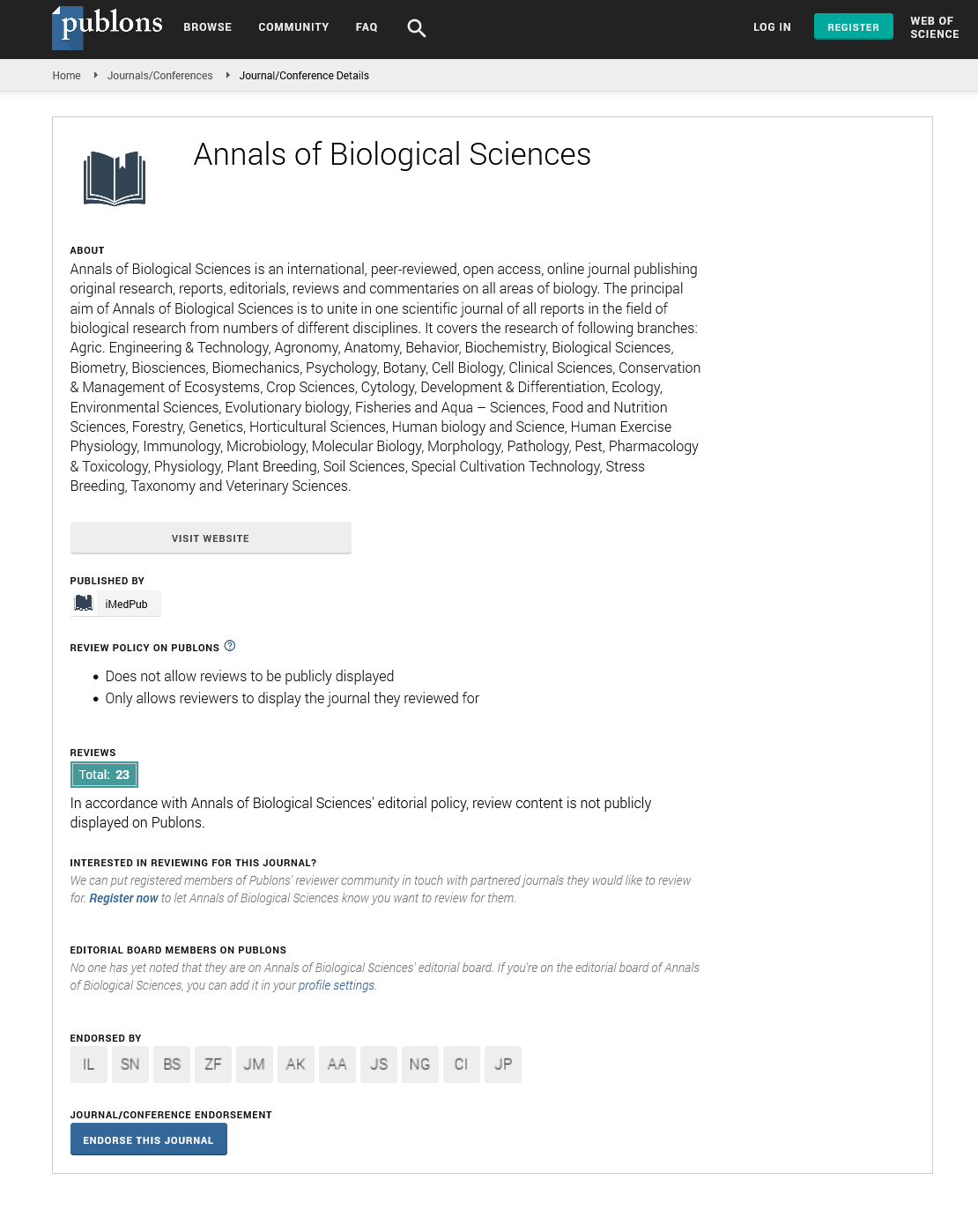ISSN : 2348-1927
Annals of Biological Sciences
Abstract
Current Laboratory Tools for Inherited Proteoglycan Biosynthesis Defects and Bikunin as a Promising Blood Biomarker
Proteins are joined to sulfated glycosaminoglycan chains to form proteoglycans. They are a class of macromolecules that are primarily engaged in the construction of organs and tissues as key components of extracellular matrix. Some proteoglycans also function as signalling molecules in inflammatory responses, cell proliferation, adhesion, and differentiation. Inborn defects of proteoglycan metabolism are a group of orphan illnesses characterised by severe and permanent skeletal deformities as well as multiorgan dysfunction. Because of unspecific clinical symptoms, inaccessible functional laboratory tests, and a lack of simple blood biomarkers, identifying the gene variations that cause these diseases becomes challenging. We summarise the molecular routes of proteoglycan production, the accompanying hereditary disorders, and the relevant biochemical screening procedures in this review, with a specific emphasis on a circulating proteoglycan, termed bikunin, and its potential as a novel biomarker of these diseases.
Author(s): Erica Melena
Abstract | Full-Text | PDF
Share This Article
Google Scholar citation report
Citations : 406
Annals of Biological Sciences received 406 citations as per Google Scholar report
Annals of Biological Sciences peer review process verified at publons
Abstracted/Indexed in
- Google Scholar
- China National Knowledge Infrastructure (CNKI)
- WorldCat
- Publons
- ROAD
- Secret Search Engine Labs
Open Access Journals
- Aquaculture & Veterinary Science
- Chemistry & Chemical Sciences
- Clinical Sciences
- Engineering
- General Science
- Genetics & Molecular Biology
- Health Care & Nursing
- Immunology & Microbiology
- Materials Science
- Mathematics & Physics
- Medical Sciences
- Neurology & Psychiatry
- Oncology & Cancer Science
- Pharmaceutical Sciences
